The Supreme Court on Monday gave a split verdict on the burial of a pastor, whose body was lying in a mortuary in Chhattisgarh since January 7, and directed his last rites to be performed at a site meant for Christian burials in the neighbouring village.
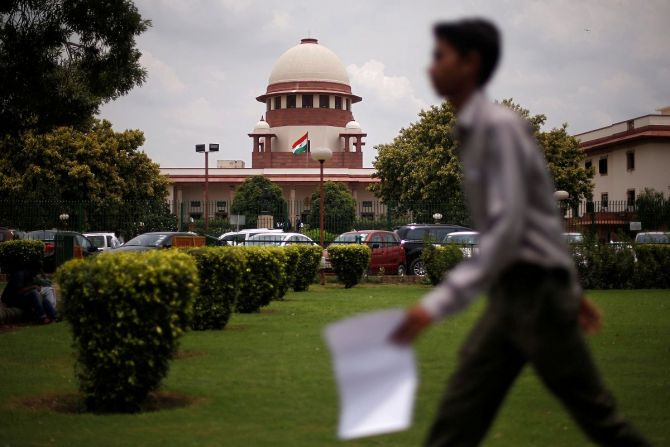
While Justice B V Nagarathna said the burial should be held in the family's private agricultural land, Justice Satish Chandra Sharma said the last rites should be performed at the designated spot away from the village.
"There is no consensus between the members of this bench on the place of resting of the appellant's father who died on January 7," said the bench.
However, observing the mortal remains were lying in the mortuary for the last three weeks since January 7, and to 'accord an expeditious and dignified burial' the bench agreed to issue the directions under Article 142 of the Constitution of India.
The top court directed the appellant to perform his father's last rites at a burial ground in Karkapal Village, situated 20-25 kilometer away from his native Chhindwada Village, where a separate burial ground for Christians was available.
'The respondent-state and its local authorities shall ensure that the appellant and his family are provided with all logistical support for the purpose of transferring the body of the deceased from the mortuary at the medical college situated in Jagdalpur to the Christian burial ground situated at village Karkapal, if so desired by the appellant,' it said.
The apex court also passed directions for adequate police protection by the state government and its authorities to ensure the burial took place at the earliest.
'The directions issued by this bench are with regard to the peculiar facts and circumstances of the present case and bearing in mind judicial stewardship and to alleviate the predicament and suffering of the appellant and his family,' it said.
Justice Nagarathna, in her 37-page opinion, said death was a great leveller and it was necessary for everyone to remember time and again about this solemn truth.
"But the instant case demonstrates that the death of a resident of a village can give rise to divisiveness thereby calling upon the apex court to rule on his site of burial," she said.
Had the village panchayat quelled the 'aggressive objections' and 'threats to the appellant's family', the matter would have been resolved at the village itself, added Justice Nagarathna.
She said the declaration that any person who has forsworn the tradition of the community or has converted into a Christian was not allowed to be buried at the village graveyard was 'unfortunate'.
"To my mind, this is nothing but a violation of Article 14 and Article 15(1) of the Constitution of India which speak of equality before the law and the equal protection of the laws as well as places a strict prohibition of discrimination on the ground of religion, respectively," she said.
Questioning the authority of additional superintendent of police (Bastar) of making such a declaration, Justice Nagarathna said such an attitude on the part of local authorities -- at the village level or higher level -- indicated a betrayal of the 'sublime principles of secularism' and the 'glorious traditions of the country' believing in 'sarva dharma samanvaya/sarva dharma samabhava' (equality of all religions) which was the essence of secularism.
'Secularism together with the concept of fraternity, as envisaged under our Constitution, is a reflection of harmony between all religious faiths leading to common brotherhood and unity of the social fabric in the country. It is therefore incumbent on all citizens as well as institutions, whether of governance or otherwise, to foster fraternity amongst the citizens. It is brotherhood and fraternity among citizens which would make the country stronger and more cohesive given the diversity of the land and the need for unity,' read her verdict.
The judge directed the petitioner to conduct the last rites of his father at his private agricultural land in his village at the earliest.
Justice Sharma, however, said a perusal of the Chhattisgarh gram panchayat rules would reveal graves couldn't be arbitrarily constructed, and must be established in the designated areas identified by it.
"Thus, with respect, I am unable to appreciate the need to exercise of our equitable jurisdiction under Article 142 of the Constitution of India to overcome the prohibition encapsulated under Rule 8 of the CG Rules; and permit the appellant to bury the remains of the deceased on his private land, more-so in light of the fact that a designated burial ground is present within the vicinity, i.e., merely 20-25 kilometer away in village Karkapal," he said.
Justice Sharma directed the appellant and his family to be provided with an appropriate site within the designated Christian burial ground in Karkapal Village for the burial.
The top court passed the order on a plea of one Ramesh Baghel, challenging an order of the Chhattisgarh High Court which disposed of his plea seeking his father's burial in his village graveyard.

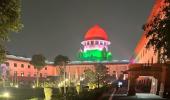
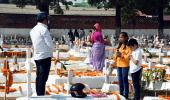
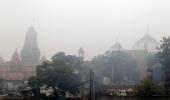




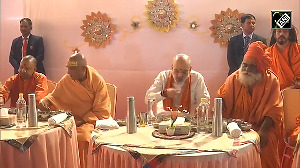


 © 2025
© 2025